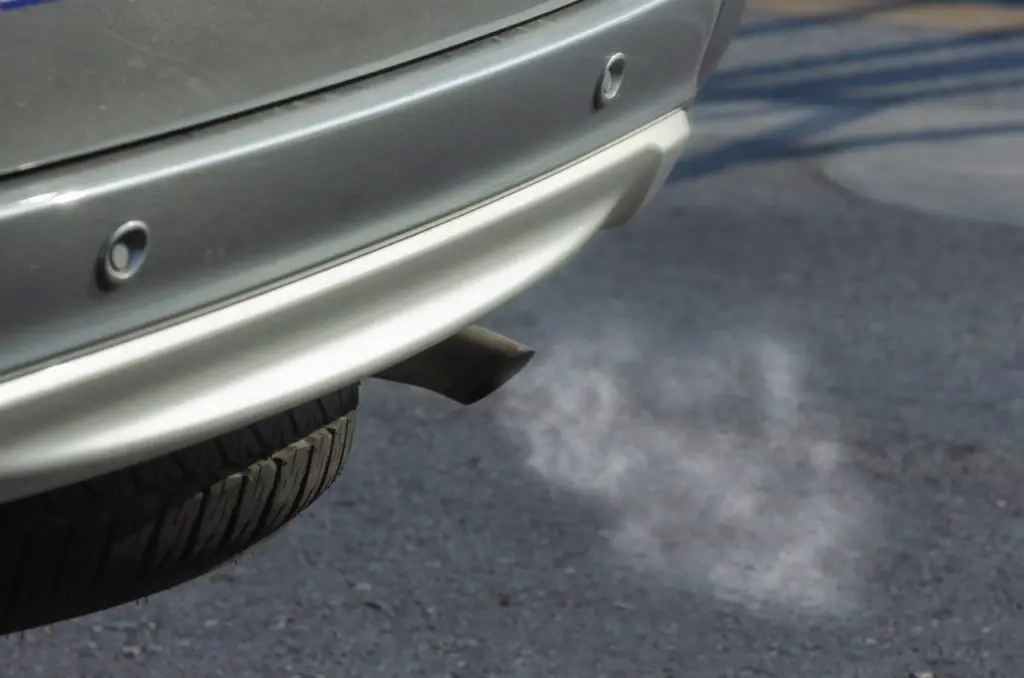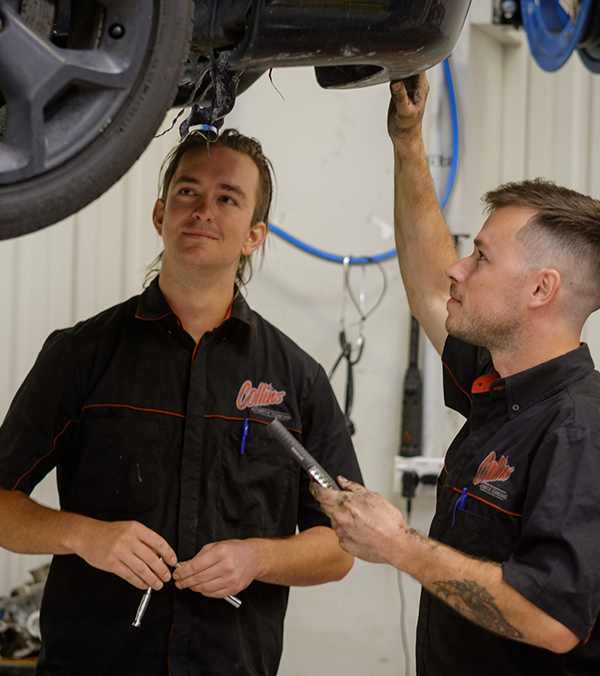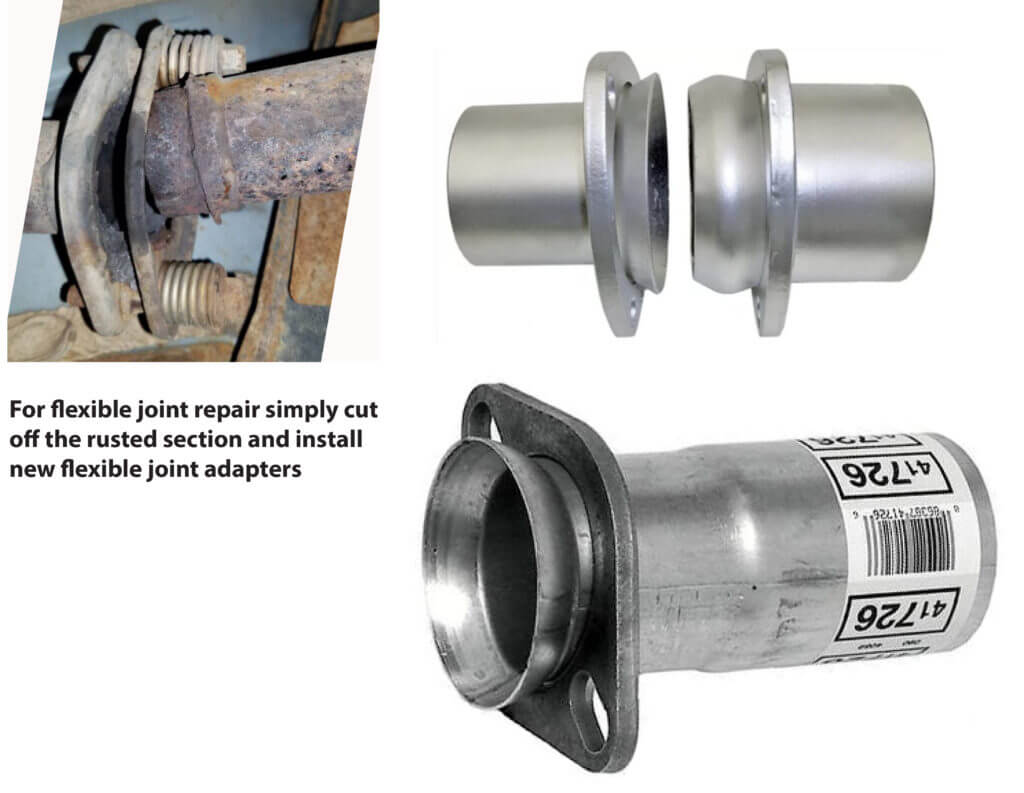Listen up, folks. If you've ever heard that annoying hissing sound coming from under your car or noticed a drop in performance, it might be time to face the music—an exhaust leak. This issue isn't just about annoying noises; it can affect your car's efficiency, safety, and even your health. Don't panic though, because we're here to break it down step by step so you can tackle this problem like a pro.
Now, before we dive deep into the nitty-gritty, let's talk about why exhaust leaks matter. It's not just about fixing something that's broken—it's about ensuring your car runs smoothly, saving you money on fuel, and keeping harmful gases out of your cabin. And hey, if you're the DIY type, you'll love this guide because it'll walk you through everything you need to know about exhaust leak repair.
By the end of this article, you'll have all the tools, tips, and tricks to either fix the leak yourself or know exactly what to ask when you take your car to a mechanic. So buckle up, grab a cup of coffee, and let's get started on this exhaust leak repair journey!
Read also:Salice Rose Leak The Untold Story And What You Need To Know
Table of Contents:
- Understanding Exhaust Leaks
- Common Causes of Exhaust Leaks
- Signs of an Exhaust Leak
- Tools You'll Need for Exhaust Leak Repair
- The Repair Process
- Cost Considerations for Exhaust Leak Repair
- Safety Tips When Working on Your Exhaust System
- DIY vs Professional Repair
- Preventing Future Exhaust Leaks
- Final Thoughts
Understanding Exhaust Leaks
So, what exactly is an exhaust leak? Think of your car's exhaust system as the lungs of your vehicle. It's responsible for removing harmful gases from the engine and ensuring that everything runs smoothly. When there's a leak, it's like having a hole in one of those lungs—things start to go sideways real quick.
An exhaust leak happens when there's a break, crack, or gap in any part of the exhaust system. This system includes the manifold, pipes, catalytic converter, muffler, and tailpipe. Any breach in these components can cause a range of problems, from reduced fuel efficiency to potential health risks.
Why Exhaust Leaks Are a Big Deal
Here's the deal: exhaust leaks aren't just inconvenient—they can be downright dangerous. Carbon monoxide, a byproduct of combustion, is a silent killer. If this gas leaks into your car's cabin, it can lead to serious health issues, including headaches, dizziness, and even suffocation. That's why addressing an exhaust leak promptly is crucial.
Common Causes of Exhaust Leaks
Let's talk about what causes these pesky leaks in the first place. Understanding the root cause can help you prevent them in the future. Here are some common culprits:
- Aging components: Over time, parts like gaskets and pipes can wear out, leading to leaks.
- Corrosion: Rust is a major enemy of exhaust systems, especially in areas with high humidity.
- Physical damage: Hitting a pothole or dragging your exhaust on rough roads can cause cracks or breaks.
- Poor installation: Sometimes, a previous repair job wasn't done right, leaving room for future leaks.
These are just a few examples, but the bottom line is that regular maintenance and inspection can help catch issues early.
Read also:Jelly Bean Brain Leak The Curious Phenomenon Thats Got Everyone Talking
Signs of an Exhaust Leak
Now that you know what causes exhaust leaks, let's talk about how to spot them. Early detection can save you a lot of hassle and money. Here are some telltale signs:
- Unusual noises: Hissing, popping, or roaring sounds coming from under your car are a dead giveaway.
- Decreased performance: If your car feels sluggish or has trouble accelerating, it could be due to an exhaust leak.
- Strange smells: A strong odor of exhaust fumes inside the cabin is a red flag.
- Increased fuel consumption: If you're filling up more often than usual, it might be time to check your exhaust system.
Don't ignore these signs. The sooner you address the issue, the better.
Tools You'll Need for Exhaust Leak Repair
If you're ready to tackle the repair yourself, here's a list of tools you'll need:
- Socket set: For removing and tightening bolts.
- Exhaust sealant: To temporarily fix small leaks.
- Wrenches: Adjustable or fixed, depending on your needs.
- Safety gear: Gloves, goggles, and a mask to protect yourself from harmful fumes.
Having the right tools makes all the difference, trust me. Plus, it's always good to have these basics in your garage for future projects.
The Repair Process
Alright, let's get down to business. Here's a step-by-step guide to repairing an exhaust leak:
Step 1: Locate the Leak
This might sound obvious, but pinpointing the exact location of the leak is crucial. Use a soapy water solution to spray around the exhaust system—bubbles will form where the leak is.
Step 2: Clean the Area
Make sure the area around the leak is clean and free of debris. This ensures a better seal when you apply the fix.
Step 3: Apply the Fix
Depending on the severity of the leak, you can use an exhaust sealant for minor issues or replace the damaged part entirely for more serious cases.
Remember, if you're not comfortable doing this yourself, it's always okay to seek professional help.
Cost Considerations for Exhaust Leak Repair
Let's talk money. The cost of repairing an exhaust leak can vary depending on the severity of the issue and where you live. On average, you're looking at anywhere from $100 to $500 for parts and labor. If you're doing it yourself, you'll save on labor costs, but make sure you have the skills and tools to do it right.
Safety Tips When Working on Your Exhaust System
Safety first, folks. Here are a few tips to keep you safe while working on your car:
- Ventilation: Always work in a well-ventilated area to avoid inhaling harmful fumes.
- Protection: Wear gloves and goggles to protect your skin and eyes.
- Turn off the engine: Let the car cool down before starting any work to avoid burns.
These precautions might seem basic, but they can save you from serious injury.
DIY vs Professional Repair
Should you tackle the repair yourself or leave it to the pros? That depends on your skill level and the complexity of the issue. If it's a small leak, a DIY fix might be all you need. But for larger problems, it's worth investing in a professional repair to ensure the job is done right.
When to Call a Mechanic
If you're unsure about your ability to fix the leak or if the issue is more complex than you anticipated, don't hesitate to call in the experts. A good mechanic will diagnose the problem and provide a solution that keeps your car running smoothly.
Preventing Future Exhaust Leaks
Prevention is key. Here are some tips to help you avoid exhaust leaks in the future:
- Regular maintenance: Schedule routine inspections to catch issues early.
- Protect against rust: Use rust-proofing products on your exhaust system.
- Drive carefully: Avoid potholes and rough roads to prevent physical damage.
A little effort now can save you a lot of trouble down the road.
Final Thoughts
And there you have it—a comprehensive guide to exhaust leak repair. Whether you're a DIY enthusiast or prefer to leave it to the professionals, knowing how to identify and address exhaust leaks is essential for keeping your car in top shape.
Remember, early detection and prompt action can save you time, money, and a lot of headaches. So, if you suspect an exhaust leak, don't wait—take action today!
Got questions or comments? Drop them below, and don't forget to share this article with your fellow car enthusiasts. Together, let's keep those exhaust systems in check!


